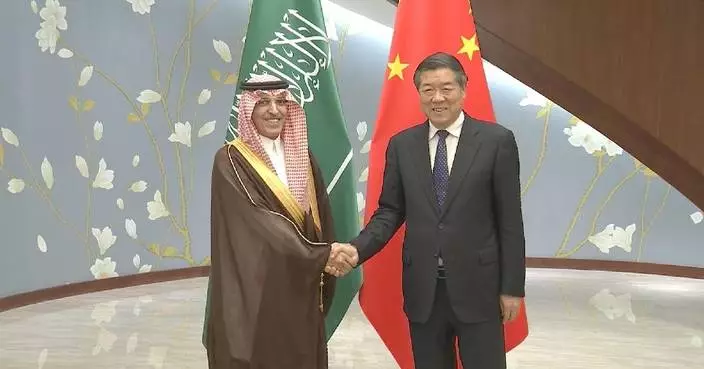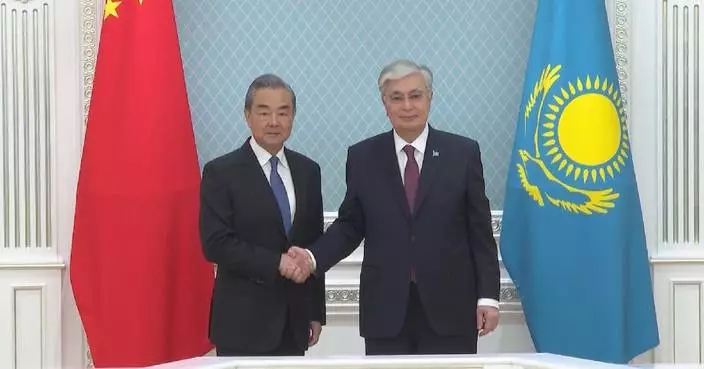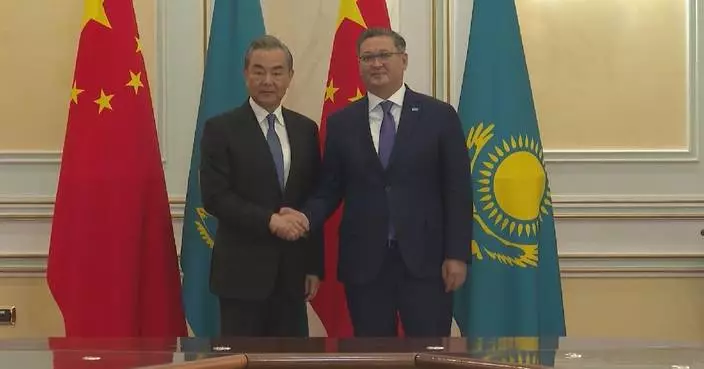Agriculture authorities of China and Vietnam jointly released some 128 million fish, shrimps and crabs in the Beibu Gulf waters on Thursday to boost fishery resources in the sea area.
The event, jointly held by the two countries, took place in waters off the Dongxing City, south China's Guangxi Zhuang Autonomous Region.
During this year's release, aquatic species including black sea bream, red porgy, saddletail grouper, river roman, redtail prawn, angrove crab and Chinese horseshoe crab, were released into the Beibu Gulf waters.
According to the data following the monitoring, research and evaluation by scientific research institutions, the output of key released species has largely increased, and the effect of resource recovery has been significant.
"The recovery rate of fish can reach 5 to 15 percent, with the rate for shrimp reaching 15 to 21 percent. The main economic varieties we released have increased for over three times," said Sun Dianrong, researcher from the South China Sea Fisheries Research Institute under the Chinese Academy of Fishery Sciences.
China-Vietnam fishery cooperation has a long history, and the positive interactions and cooperation between the two countries in this and other fields have brought tangible benefits to the people of both sides.
Since 2017, China and Vietnam have jointly organized six releases in the Beibu Gulf, with over 226 million fish and shrimps released in the previous years.

China, Vietnam release marine animals into Beibu Gulf to improve fishery resources
A Chinese mainland spokesperson said Lai Ching-te has sent "a dangerous signal" of seeking "Taiwan independence" and making provocations to undermine cross-Strait peace and stability in his speech upon assuming the role of Taiwan region's new leader on Monday.
Chen Binhua, a spokesperson for the State Council Taiwan Affairs Office, described Lai's speech as one that stubbornly followed the "Taiwan independence" stance, wantonly advocated separatism, incited cross-Strait confrontation and sought independence by relying on foreign support and by force.
Chen said the mainstream public aspiration on the island is for peace and development, instead of war and recession, while Lai has ignored the public opinion, exposing his nature of being "a worker for Taiwan independence."
The current complex and grave situation across the Strait is rooted in the fact that the Democratic Progressive Party has stubbornly stuck to the separatist stance of "Taiwan independence," rejected the 1992 Consensus that embodies the one-China principle, and kept colluding with external forces to make provocations of seeking "Taiwan independence," Chen said.
Taiwan is an inalienable part of China, said Chen, stressing that "Taiwan independence" and peace across the Strait are incompatible as fire and water.
"We have firm determination to resolve the Taiwan question and realize national reunification; we have strong capabilities to safeguard national sovereignty and territorial integrity; and we will take resolute actions to fight separatist activities seeking 'Taiwan independence' and external interference," he said.
"We will never tolerate any 'Taiwan independence' separatist acts in any form," said Chen.
China must and will be reunified, Chen stressed. No matter how the situation on the island changes and who assumes the regional leader, it will not change the fact that both sides of the Strait belong to one China, or impede the historical trend of national reunification, he said.
"We will fully implement the Party's overall policy for resolving the Taiwan question in the new era, unswervingly uphold the one-China principle and the 1992 Consensus, work together with Taiwan compatriots to promote the peaceful development of cross-Strait relations and cross-Strait integrated development, and resolutely advance the reunification of the motherland," said Chen.

Mainland says Lai sends "dangerous signal" in speech as Taiwan's new leader










